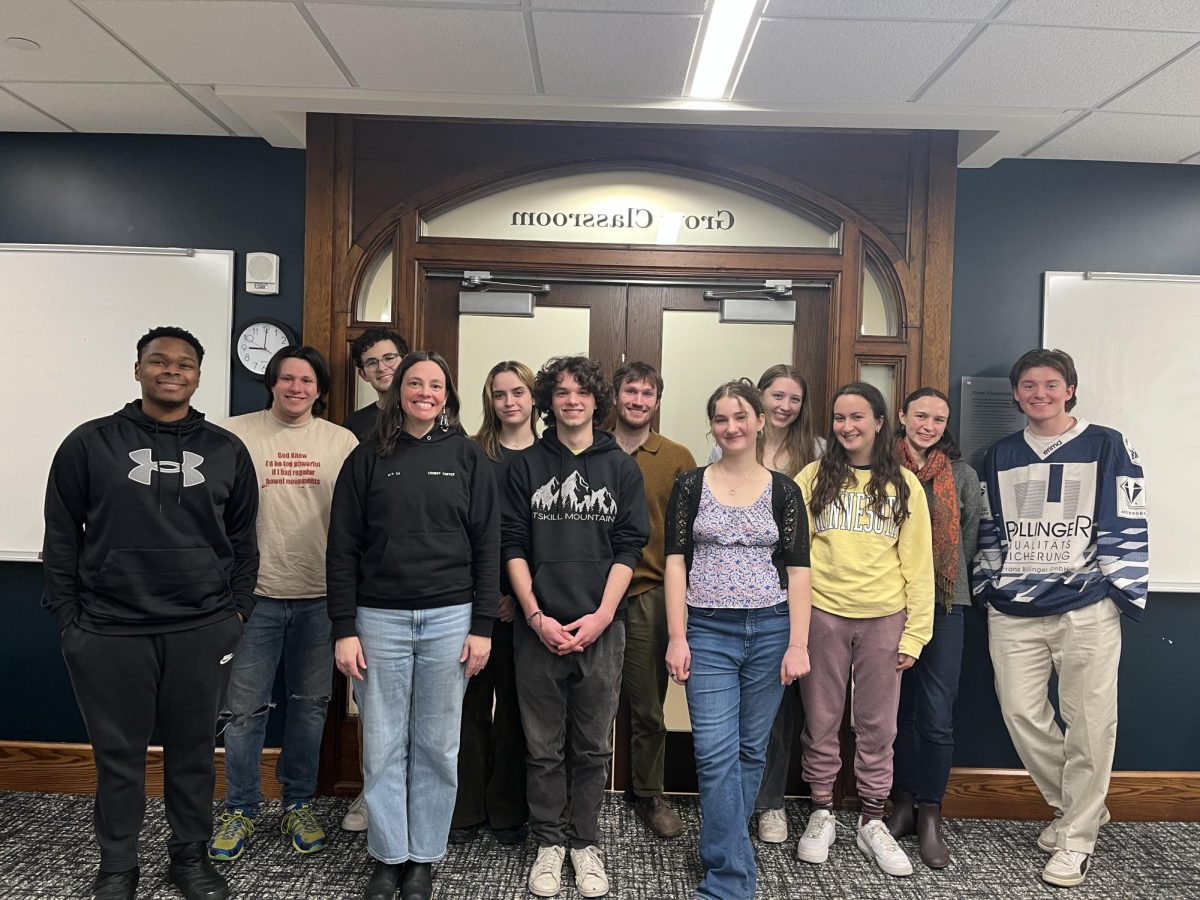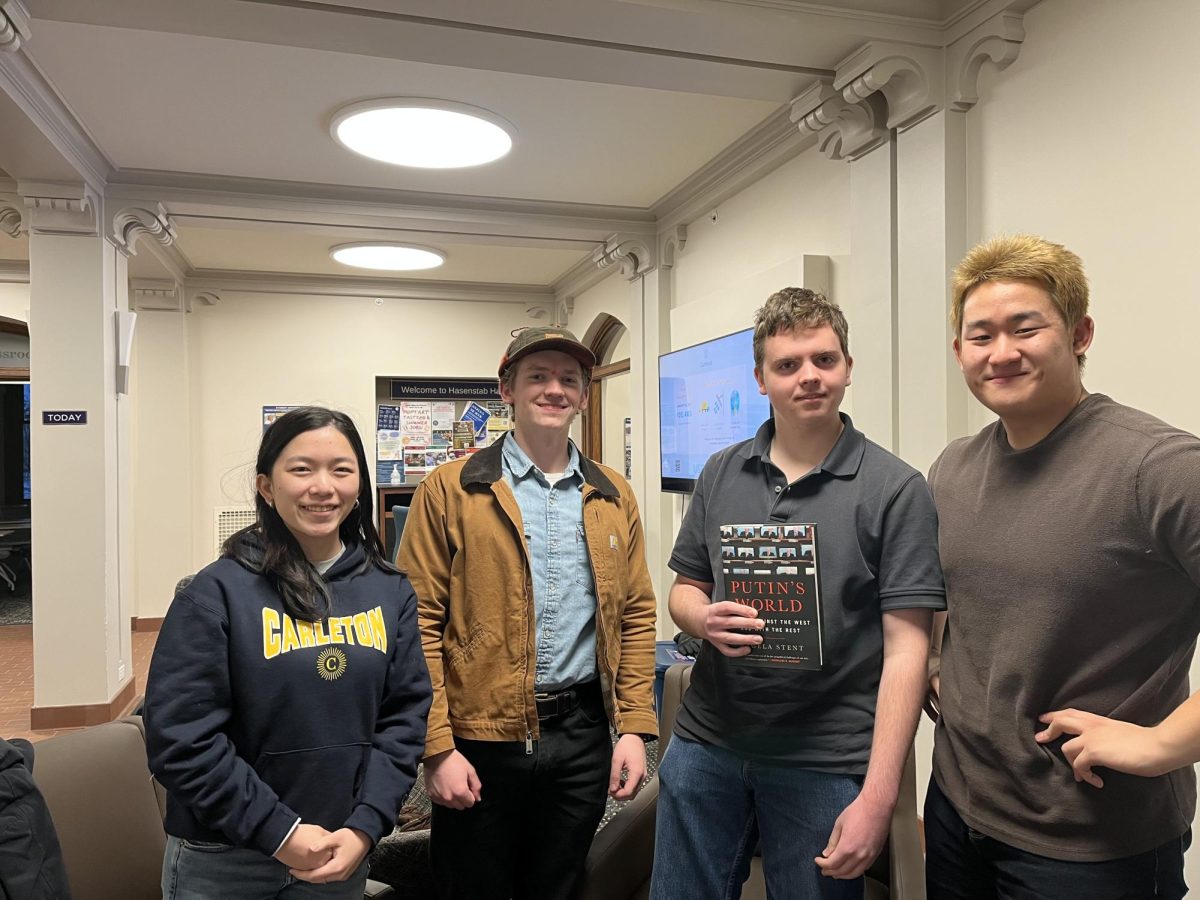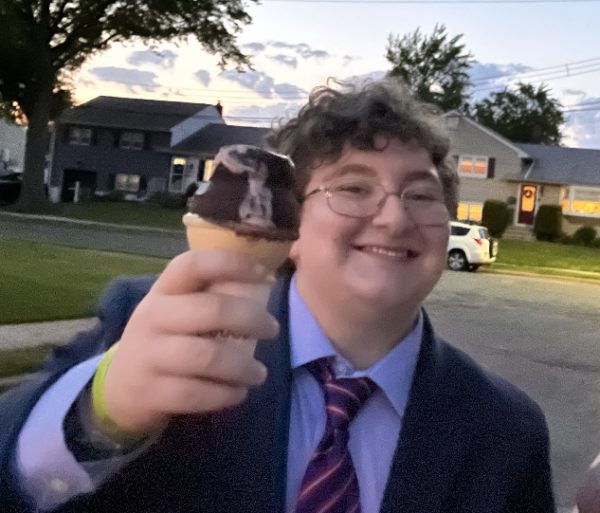On Monday, Feb. 10, a group of students and staff gathered in a Hulings classroom to spend their mid-term break getting trained in Mental Health First Aid. The training lasted from 8:30 a.m. until 5:00 p.m., and the course was taught by Cassandra Worner, the associate director of Health Promotion, and Kevin Lattu, the clinical case manager for the Office of Student Health and Counseling. Though Worner has taught Mental Health First Aid training for over a year, this was Lattu’s first time being an instructor for the program.
According to the National Council for Mental Wellbeing, the purpose of the Mental Health First Aid program is to give participants “the skills [they] need to reach out and provide initial help or support to someone who may be developing a mental health or substance abuse problem or experiencing a crisis.”
“Mental Health First Aid is important because it equips participants with the skills and confidence to have conversations with their peers about mental health challenges and provide support and connection to resources,” Worner said. “Carleton students care deeply about supporting one another, and as challenges with mental health become more common within our society, this training helps those with a desire to help learn the actions they can take to be most supportive.”
The Mental Health First Aid program was created in 2001 in Australia. The program was later adapted with added content to be used in the United States. Mental Health First Aid International is a coalition of more than 25 different countries in North America, South America, Africa, Europe, Asia and Oceania, each with its own personalized training programs.
More than four million people in the United States alone have been trained in Mental Health First Aid, and there are over 15,000 instructors administering the training in the United States.
The Mental Health First Aid curriculum is evidence-based, with trials of participants demonstrating that people certified in Mental Health First Aid [JUMP] have “greater confidence in providing help to others, greater likelihood of advising people to seek professional help, improved concordance with health professionals about treatments, and decreased stigmatizing attitudes,” according to the National Council for Mental Wellbeing.
The first Mental Health First Aid program was initially designed to aid adults but has since introduced programming for children, teenagers and those in the workplace. The training session on Monday followed a curriculum specifically designed for higher education and performing Mental Health First Aid on college and university campuses.
The training on Monday was split into ten sections to be covered over two sessions, one in the morning and one in the afternoon, with a break in between. The morning session was much shorter and was mostly dedicated to laying the groundwork for Mental Health First Aid skills, while the afternoon session was much longer, and was mostly dedicated to practicing the skills learned earlier through videos, scenario analysis and interactive activities.
The morning session of the program began with an introduction to Mental Health First Aid with an emphasis on speaking about mental health terms respectfully to avoid stigmatizing people’s mental health experiences. The group brainstormed language that they hear pertaining to mental health, both in their community, and in media and pop culture. They then determined whether the words and phrases were stigmatizing or not.
Some words, such as “crazy”, “psycho” or “insane,” were thought to be stigmatizing because of their connotations which often cast blame on a person experiencing mental health issues. Other phrases, such as “mentally ill,” may be stigmatizing or informative depending on tone and context. The instructors also encouraged attendees to use the phrase “mental health challenge” when describing the state of a person needing Mental Health First Aid training, and to speak about substance abuse challenges like other mental health challenges.
The Mental Health First Aid program revolves around a five-step intervention process that trainees remember using the acronym ALGEE. ALGEE intervention is not a linear process, and it can be used for a wide variety of mental health challenges, from early intervention to a mental health crisis. According to the National Council for Mental Wellbeing, steps include “assess for risk of harm,” “listen non-judgmentally,” “give reassurance and information,” “encourage appropriate professional help” and “encourage self-help and other support strategies.” Trainees learned this acronym early in the training and used it as a framework in a range of possible intervention scenarios throughout the day.
“My favorite part of the MHFA program is the scenarios that participants engage in to practice identifying signs of a mental health challenge and applying the action plan to the scenario so that they feel more equipped to support people in real life after the training,” Worner said. “Also, I appreciate that students, faculty and staff can all take this course, and have the opportunity to learn from each other in this space just as much as they learn from the instructors.”
Participants were encouraged to think of the skills learned during the Mental Health First Aid in the same way that they would think of the depth and use of skills learned in a Red Cross First Aid or CPR course. The instructors noted that, like medical first aid trainees, Mental Health First Aid participants were learning how to be “first responders” and “connectors,” being the first to respond to mental health challenges and connecting those experiencing challenges or crises to appropriate professionals and other supports. However, just like a first responder cannot diagnose or treat medical conditions, Mental Health First Aid trainees did not learn how to diagnose or treat mental disorders, simply how to recognize if a problem existed.
The program covered many difficult and potentially triggering topics and participants were encouraged to take breaks or get up and stretch throughout the training as needed. While breaks were allowed, trainees were required to be present for at least 90% of the seven-and-a-half-hour training session in order to be eligible for certification in Mental Health First Aid. At the end of the training, participants received stickers that said they were certified and took an online 10-question final exam to confirm they could utilize the basic skills they learned in training. Finally, participants received a virtual Mental Health First Aid certificate that is valid for three years.













